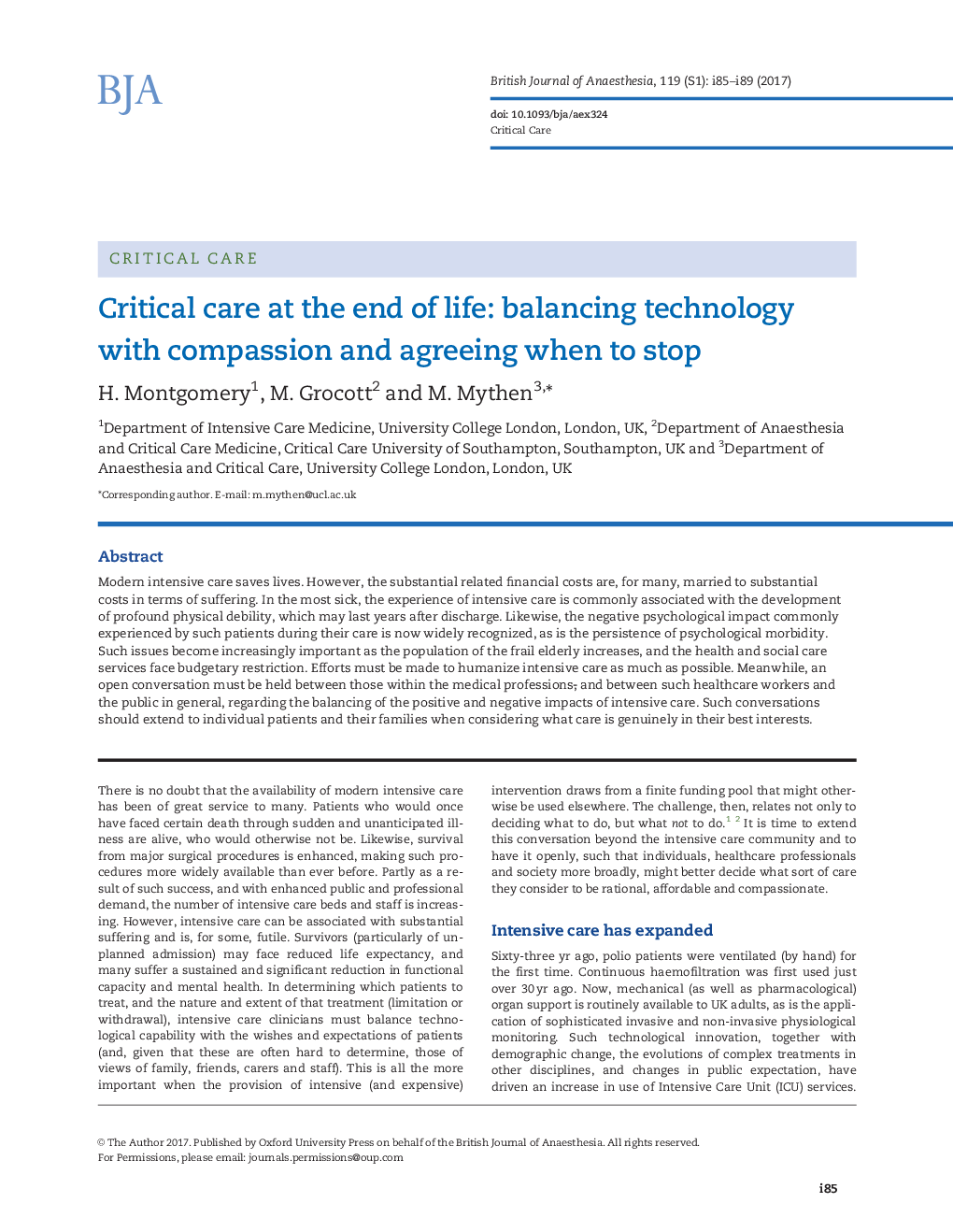| Article ID | Journal | Published Year | Pages | File Type |
|---|---|---|---|---|
| 8930228 | British Journal of Anaesthesia | 2017 | 5 Pages |
Abstract
Modern intensive care saves lives. However, the substantial related financial costs are, for many, married to substantial costs in terms of suffering. In the most sick, the experience of intensive care is commonly associated with the development of profound physical debility, which may last years after discharge. Likewise, the negative psychological impact commonly experienced by such patients during their care is now widely recognized, as is the persistence of psychological morbidity. Such issues become increasingly important as the population of the frail elderly increases, and the health and social care services face budgetary restriction. Efforts must be made to humanize intensive care as much as possible. Meanwhile, an open conversation must be held between those within the medical professions-, and between such healthcare workers and the public in general, regarding the balancing of the positive and negative impacts of intensive care. Such conversations should extend to individual patients and their families when considering what care is genuinely in their best interests.
Related Topics
Health Sciences
Medicine and Dentistry
Anesthesiology and Pain Medicine
Authors
H. Montgomery, M. Grocott, M. Mythen,
